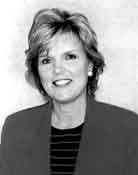 | The Reverend Doctor Cathy Northrup was born in Ft. Meade, MD, and was raised in a variety of places in the United State and Germany, as her father was in Counter Intelligence with the Army. She graduated summa cum laude, Phi Beta Kappa, from Hamline University in St. Paul, MN, with a double major in English and Religion. She graduated from Georgetown Law Center in Washington, DC, and practiced law with the Federal Reserve Board for a number of years before attending Union Theological Seminaryin Richmond, VA. She graduated from Union, and served several churches in North and South Carolina, at the same time obtaining her Doctor of Ministry from Princeton Theological Seminary in Princeton, NJ. Dr. Northrup is currently the Pastor/Head of Staff of First Presbyterian Church, Wichita, KS. She is married and has two black Labrador dogs who were rescued from abusive situations. You can contact Dr. Northrup at cnorthrup@firstpresbywichita.org or by phone at (316) 263-0248, ext. 26. |
Religion
2009-08-01 13:52:00
Did He die to make us holy?
Question: I heard a Protestant preacher say that our Lord Jesus died on the cross for us: to make us holy. He added: the fact that we can now get into heaven, as the result of his dying on the cross, is a side-benefit. I thought this is most interesting. Can you comment how your particular faith regards that statement?
Answer: You began your question with a statement. You said you had heard from someone that Jesus died on the cross to make us holy, and his death on the cross allowing us to have eternal life was merely a “side benefit.” You then asked whether my particular faith accepts this statement or not.
Presbyterians understand Jesus’ death on the cross in the following way. Because humanity had sinned over and over again, humanity’s relationship with God was broken. The holy and just God cannot simply accept sin. In order to resolve this situation, Jesus took our sin upon himself in dying on the cross, thus re-establishing our relationship with God and paying the price for our sin. How he paid this price---that is, how he “atoned” for our sin---is the subject of a variety of “theories of the atonement.” These include Jesus as “victor,” the cross as “satisfaction,” and the cross as a “model.” We agree, however, that his atonement made us “at-one” with God; it put us into right relationship with God. This doesn’t really “make us holy”; rather, because of Jesus’ death, we are able, through him, once again to stand before God through justification---being “put right with” God---and live a life in which God seeks to make us holy through sanctification.
After Jesus’ death on the cross, God raised him from the dead. It is this act which conquered the power of death, and it is this act which allows us eternal life, or as you say, us “getting into heaven.” Jesus rose from the dead, and his body was resurrected. We do not fully understand exactly how this happens or how exactly we will be raised from the dead, but we believe that God’s power is greater than the power of sin and the power of death, and that we will be raised with
Jesus to live in heaven.


